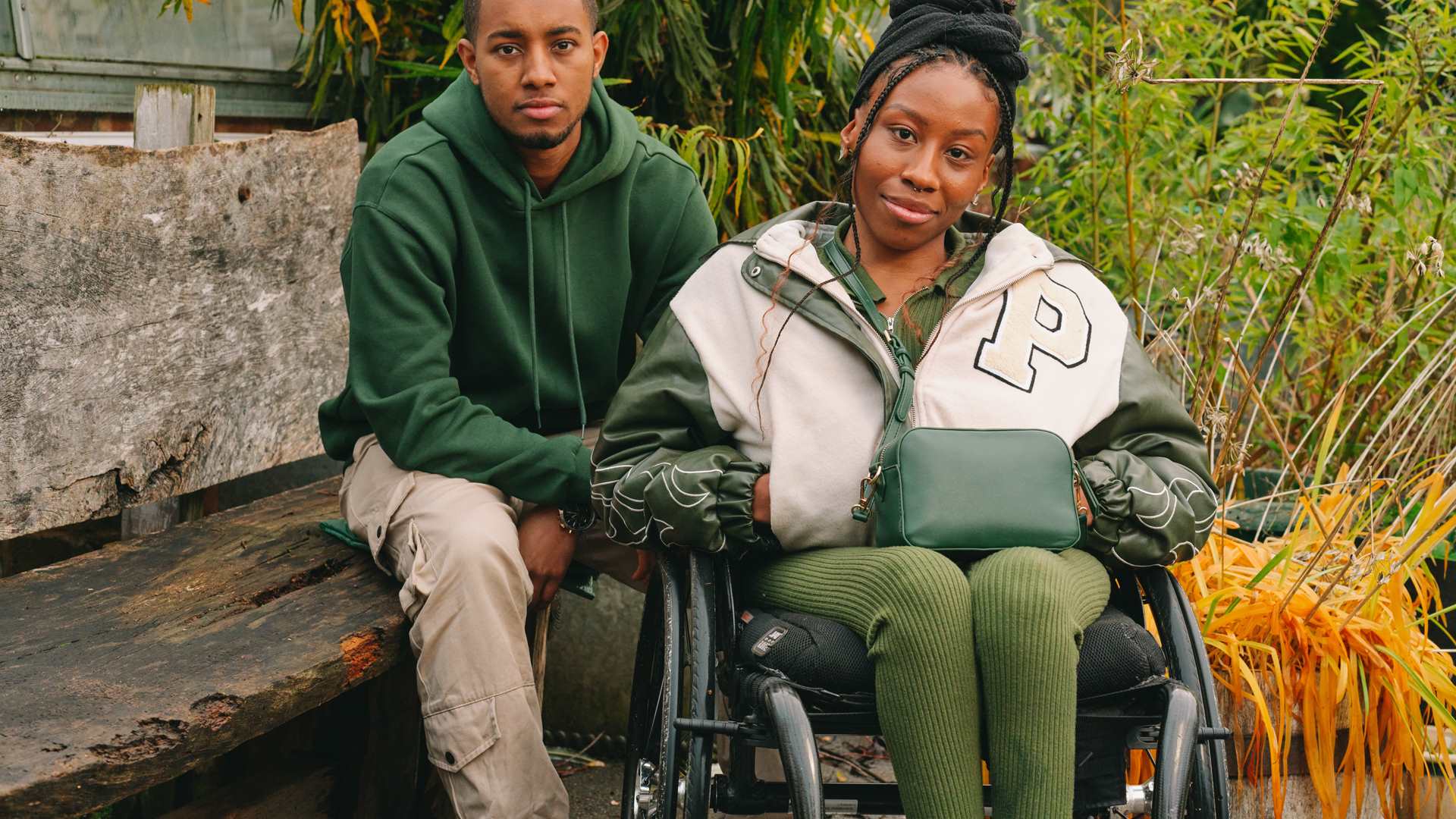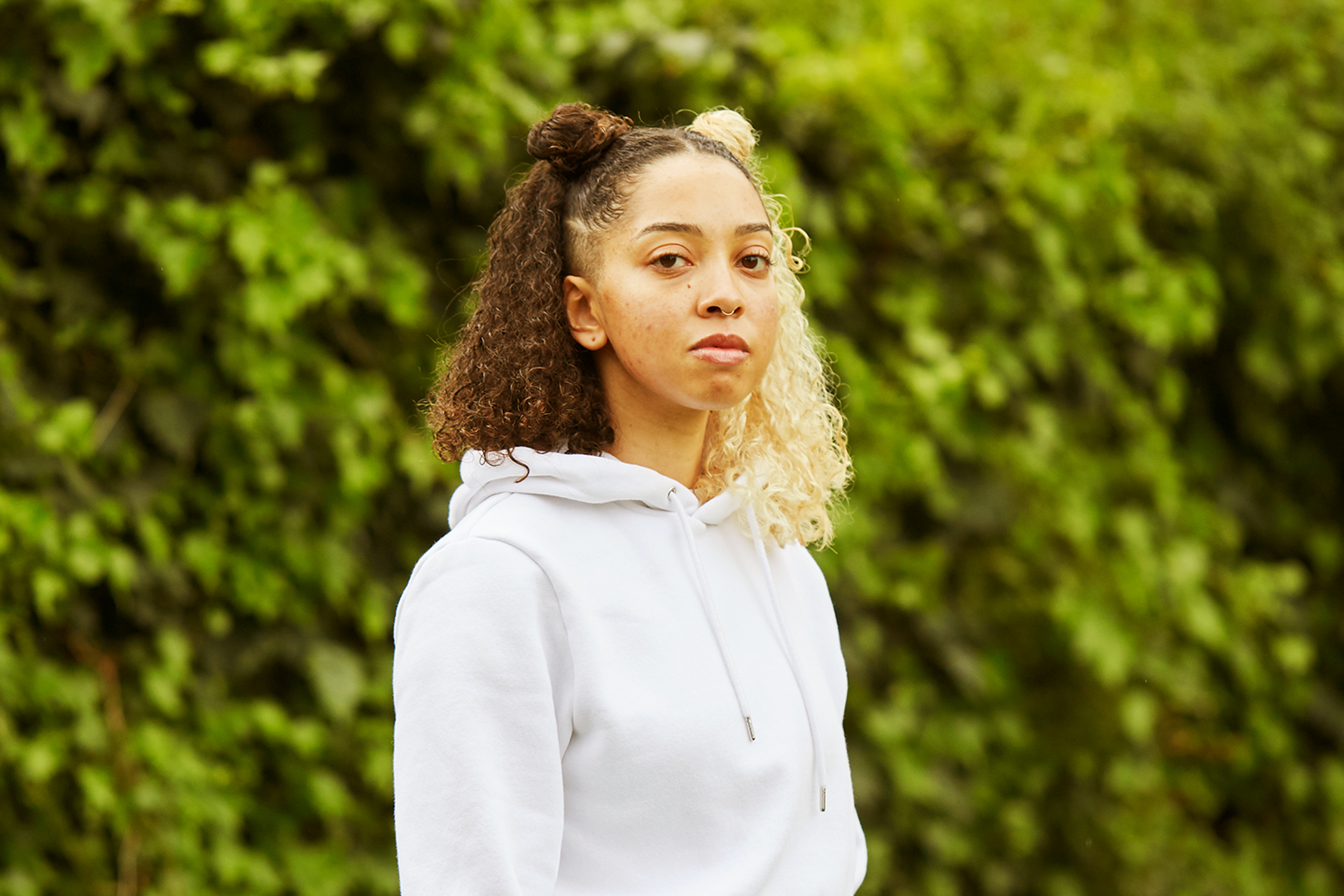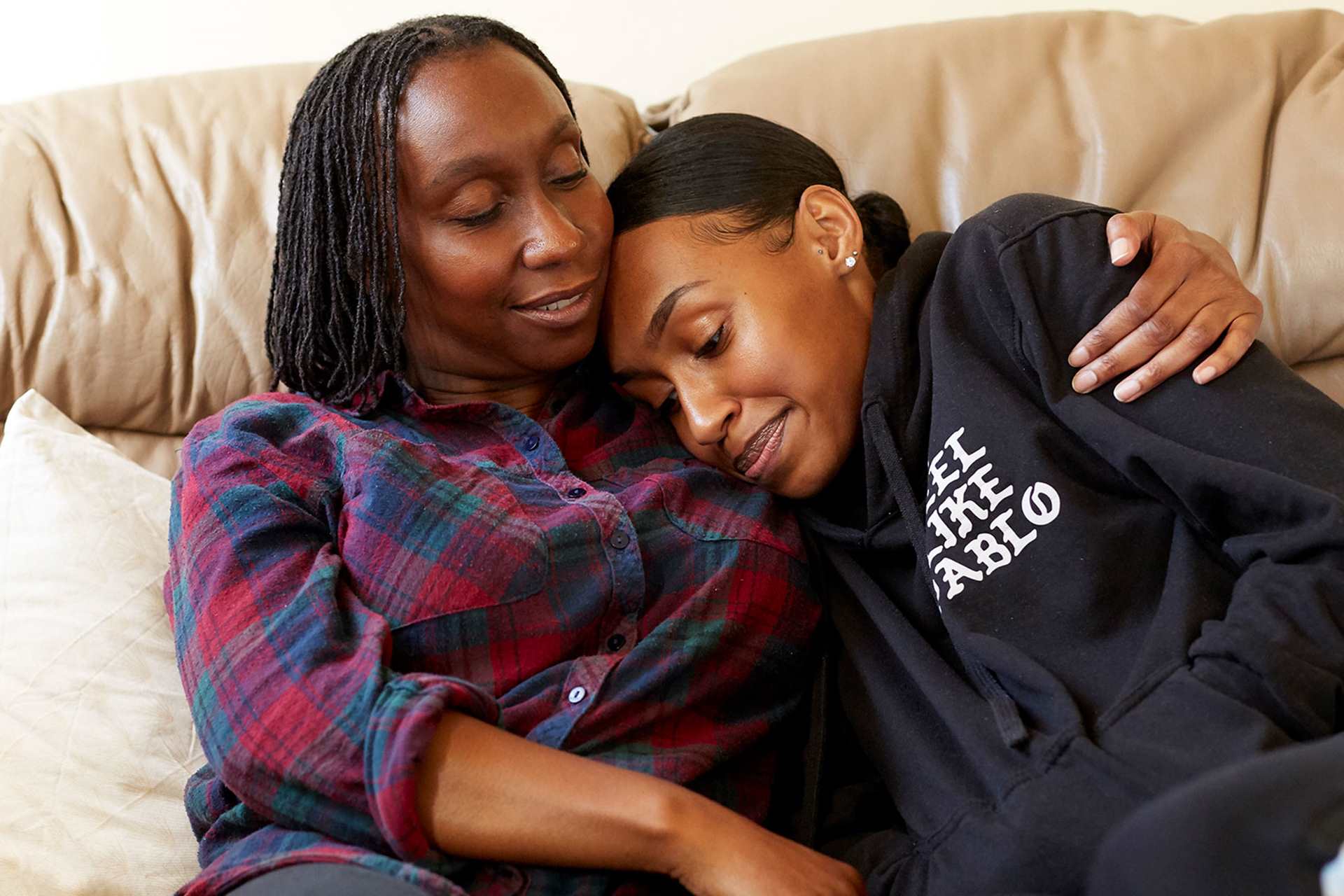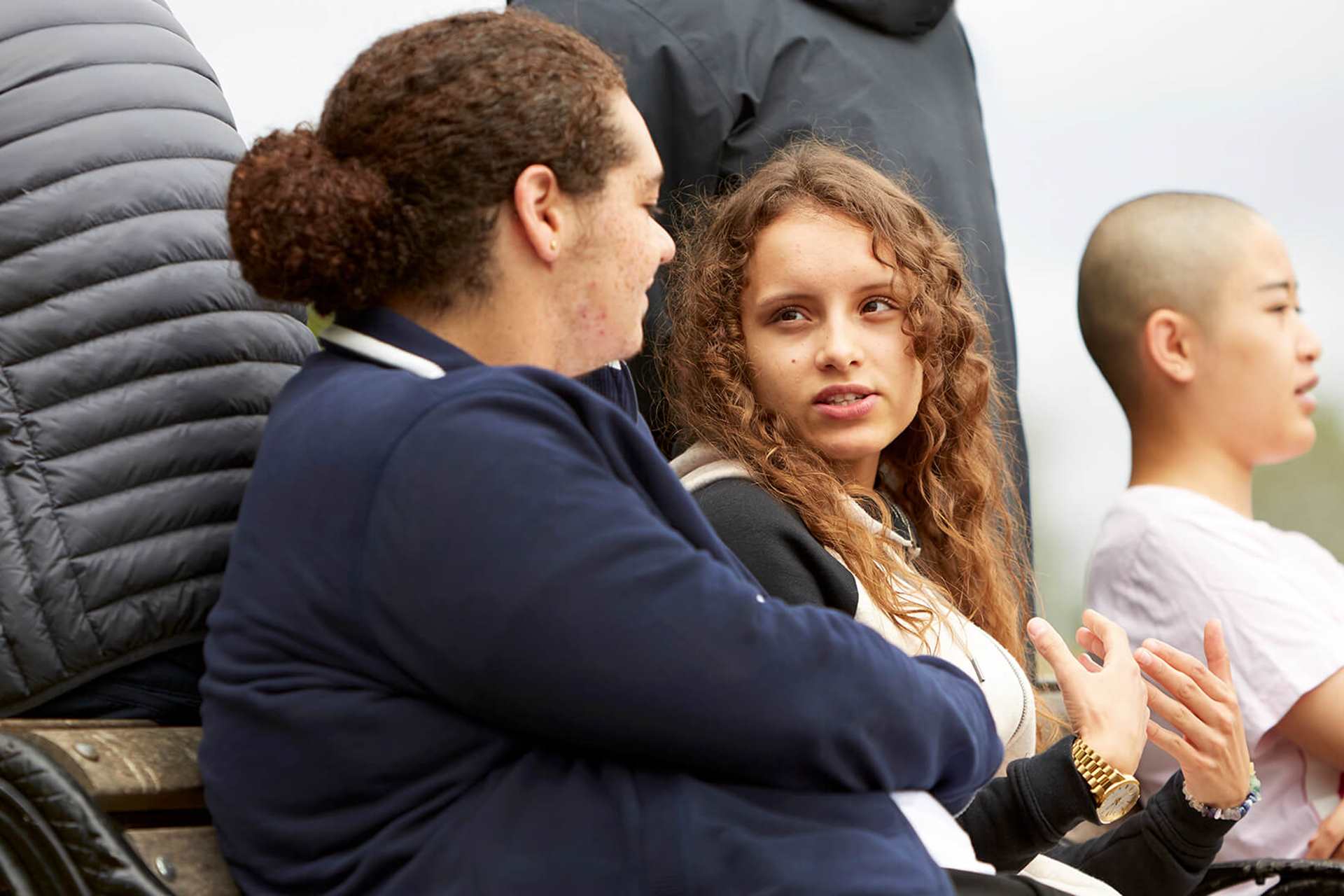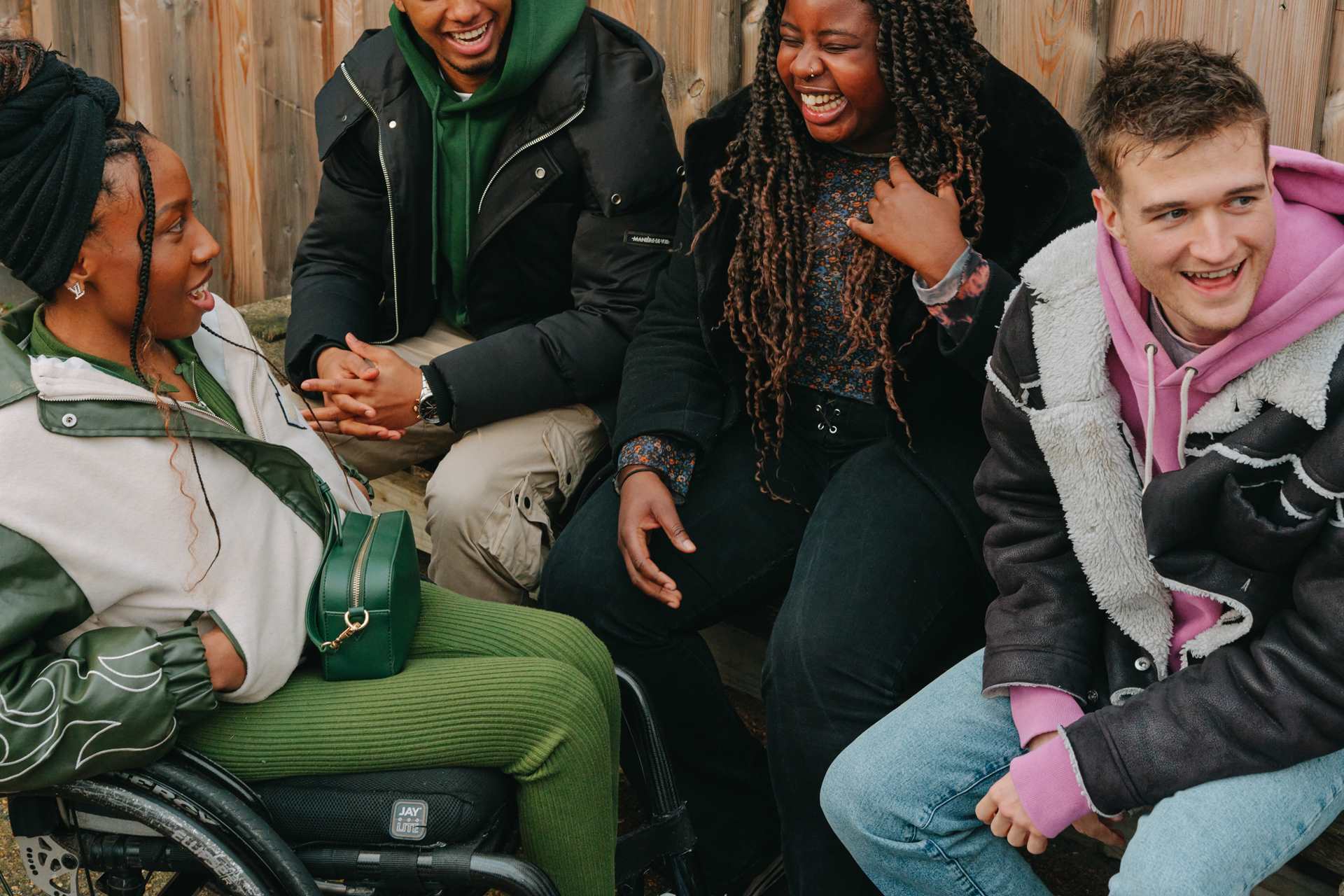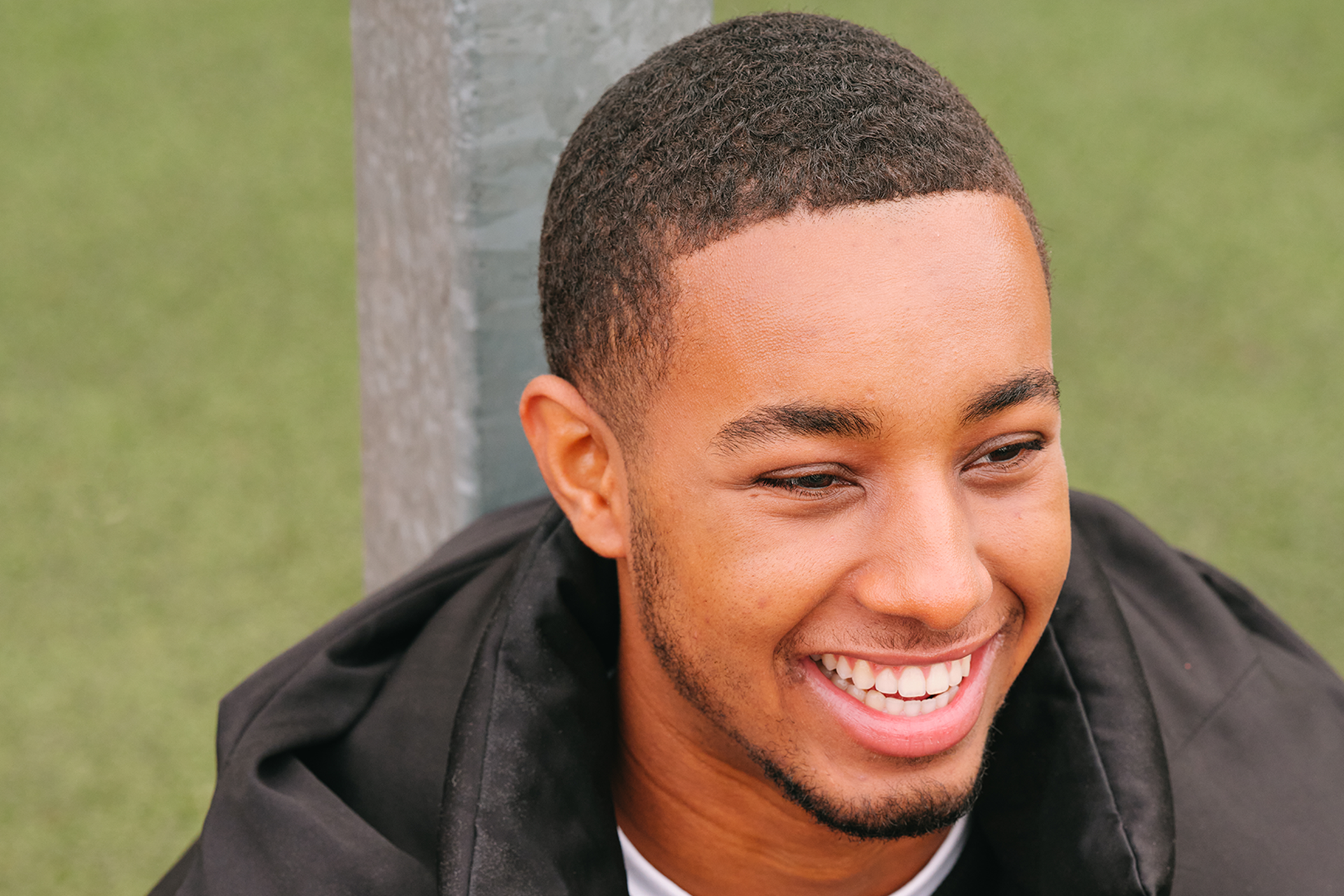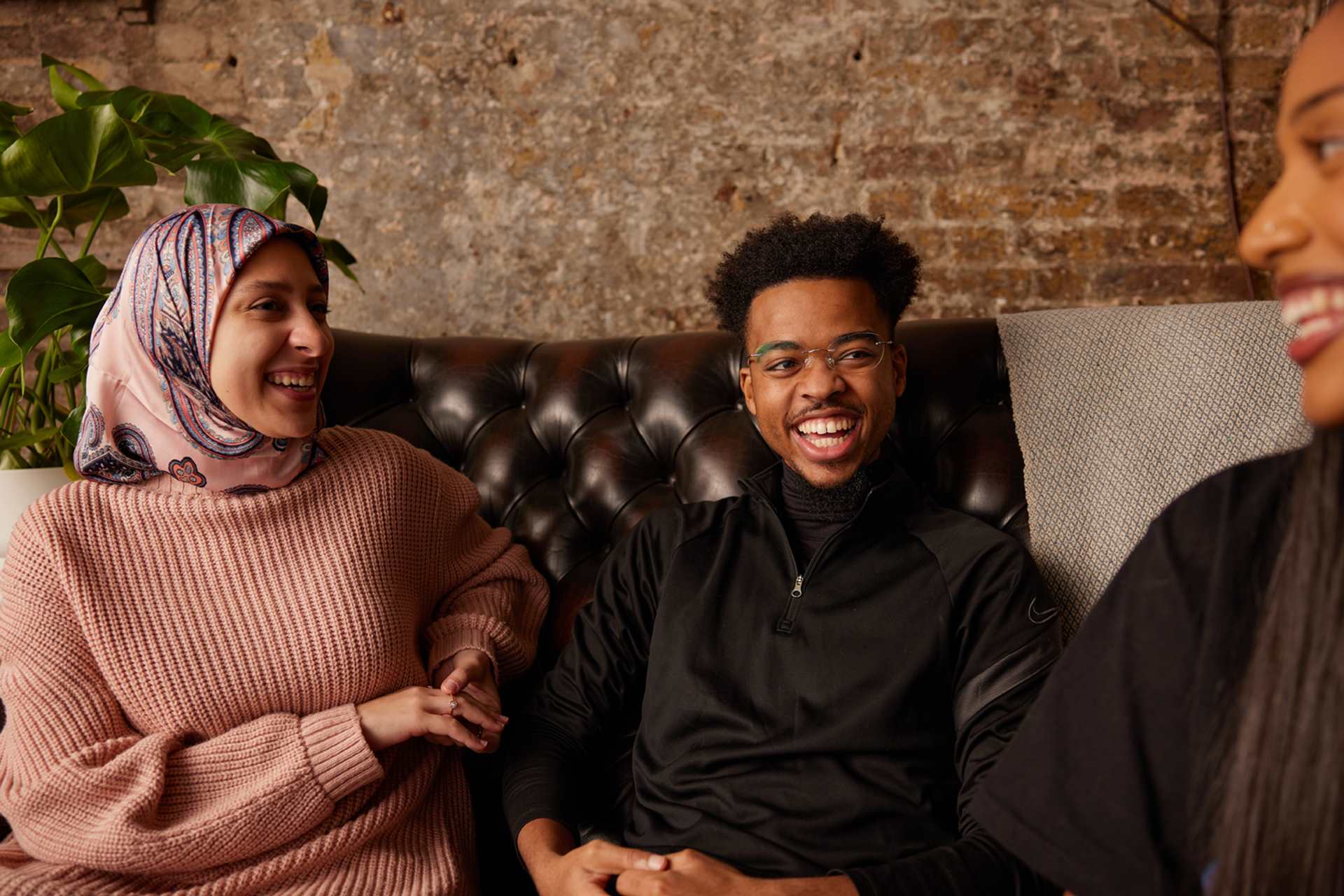Topics mentioned: disability and mental health, racism and mental health, cultural identity, self-esteem, body image, school
About: As a Black, Disabled, queer young person, Simi didn't see herself represented in stories. Here's how family, community and creativity encouraged self-love.
It was my family, especially my sisters, who helped me realise the beauty in my Blackness. My sisters were writers too and the heroes in all their stories were Black and proud to be.
My name is Simi and I’m a Black, Disabled, queer person. To some people, that sentence alone is too much. I am too much. But every part of my identity makes me who I am and who I am is a strong, hard-working, confident creative.
I was born into a loving Jamaican-British family. My skin is ochre-coloured, I have thick afro hair, and a wide nose. My cheeks are indented with cute little dimples and I have a gap in between my teeth which I used to love sticking things into when I was younger. I remember wishing my hair was blond and straight like my Barbie dolls instead of twisted into plaits which none of my friends wore.
My curly hair seemed so different compared to everyone else’s. I’ve always been a creative so I loved writing when I was a kid, but the characters in my stories would always be white. All my favourite heroes from the shows I watched were white, so to me, that’s what a hero looked like. I didn’t want to write about Black characters – they didn’t seem as cool to me.
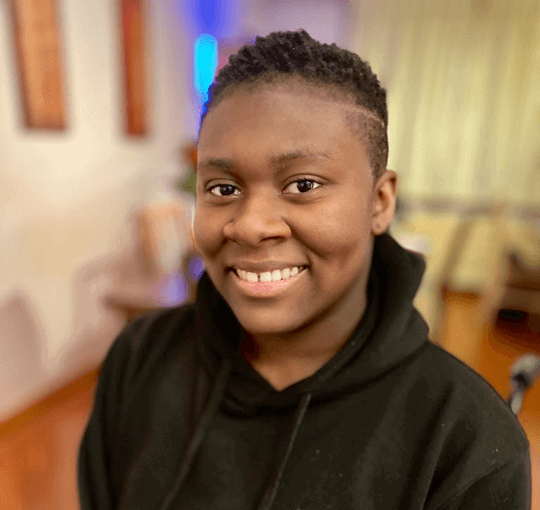
Portrait of Simi smiling.
It was my family, especially my sisters, who helped me realise the beauty in my Blackness. My sisters were writers too and the heroes in all their stories were Black and proud to be. They also recommended me books with strong Black characters. I learnt more about our history in school and realised that Black was beautiful in its uniqueness. The colour of my skin did make me stand out compared to the rest of my friends. I was constantly questioned by strangers about which country I was from (they couldn’t wrap their heads around a Black person coming from the same place as them). But the colour of my skin also made me belong to a community of incredibly powerful people. Black culture is magical, our food is incredible, and our music is one of a kind.
Being Black makes me different but I wouldn’t choose to be any other way. I no longer look at the Barbies I played with when I was younger and want to be like them. Instead, I look at my strong caring mother and my incredible sisters who are so hard-working and know who they are without a shadow of a doubt – and that’s who I want to be like.
My disability is an undeniable part of who I am. I can’t picture a version of Simi who isn’t tapping away at the keyboard with a pen in her mouth.
When I was two years old, my parents found out that I’d been born with a rare progressive disability. During most of my childhood, I was practically nondisabled – I could walk, run, jump, and use my fingers without issue. But since I had a progressive disability, I began losing abilities one-by-one. When I was 11, I woke up one morning to discover that I’d lost all mobility in my hand. And when I was fourteen, I suddenly lost the ability to walk.
By the time I was 16, I was a permanent wheelchair-user, my fingers were curled inwards, and my wrists were limp. This made me even more different to everyone else. I felt like I was ‘broken’. Like my body was a mistake. I thought that the only way I could be happy was if I was cured of my disability so I could be like everyone else.
But I still managed to get by at school. I taught myself to write, draw, and type by holding a pen in my mouth and moving it across the keyboard or page. I received high grades for my essays and exams and made it on time to my lessons by travelling around school in an electric wheelchair. At home, I was able to get dressed on my own by flinging the clothes over my head. I could brush my teeth by pinching the brush in between both of my wrists and I navigated through the space by climbing up on furniture. It may not have been the same way other people did things – but it worked for me.
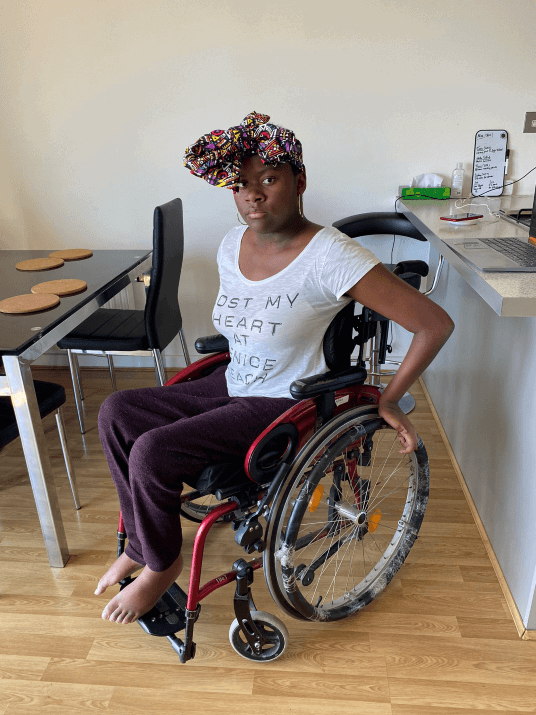
Simi in her wheelchair wearing a colourful headwrap.
That’s when I started to realise that underneath the surface, my life wasn’t actually that different from most teens my age. I did everything they did, just differently. I started asking myself about what a ‘right’ body looked like and what a ‘wrong’ one looked like. There isn’t such thing as a naturally broken body because there’s no such thing as a naturally perfect body either. Everyone is different. Society had made me feel like my body was a problem but it's not like it was stopping me from writing Shakespeare essays for class or playing Sims on my iPad when I wanted to have fun.
That was a major turning point in my self-love journey. I started to look at my hands and curled legs differently. I saw beauty in their uniqueness. My disability is an undeniable part of who I am. I can’t picture a version of Simi who isn’t tapping away at the keyboard with a pen in her mouth. Just like how my life would probably be easier if I wasn’t Black but I still wouldn’t give it up for the world – I wouldn’t choose to stop being Disabled for the world either. I love myself the way I am. Disability culture is so powerful, unique, and beautiful. We have our own history with the Disabled rights movement and our own art, dance, and music.
I feel honoured to be a part of the amazing Disability community who is always there for each other. We are stronger because of everything we’ve been through, and I feel as if being Black and queer too has made me even stronger.
I’m proud of my identities. I love my body. And I love the way I love. It’s a love that goes beyond the ordinary boundaries of gender, ethnicity, ability, or sexual orientation. I don’t fit into a specific box of gender stereotypes. I’m too much of an anomaly for that. I make my own box, I am my own voice, and it’s definitely not a quiet one.
I’m proud of my identities. I love my body. And I love the way I love. It’s a love that goes beyond the ordinary boundaries of gender, ethnicity, ability, or sexual orientation.
More from Simi
In conversation with Simi, Femi and Jaleel
Simi, Femi and Jaleel take to the mic for an episode of What's On YoungMinds? - a mental health podcast by and for young people.
Watch the video or listen on Spotify or Apple Podcasts.
More information and advice
We have tips and advice to help you find the support you need. Take a look at our guides.
Where to get help
However you're feeling, there are people who can help you if you are struggling. Here are some services that can support you.
-
Black Minds Matter
Connects Black individuals and families with free professional mental health services across the UK.
-
Galop
A dedicated LGBT+ anti-violence charity.
Gives advice and support to people who have experienced biphobia, homophobia, transphobia, sexual violence or domestic abuse.
- Opening times:
- 10am - 5pm, Monday - Friday (Open until 8pm on Wednesdays and Thursdays)
-
Scope
Provides practical information and emotional support for Disabled people.
- Opening times:
- 9am - 6pm, Monday - Friday; 10am - 6pm, weekends
